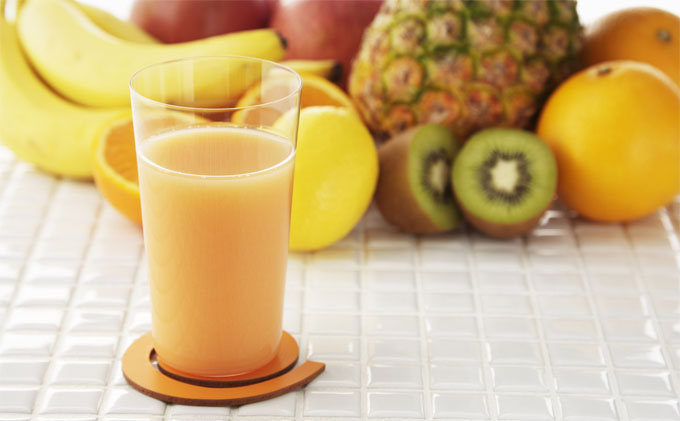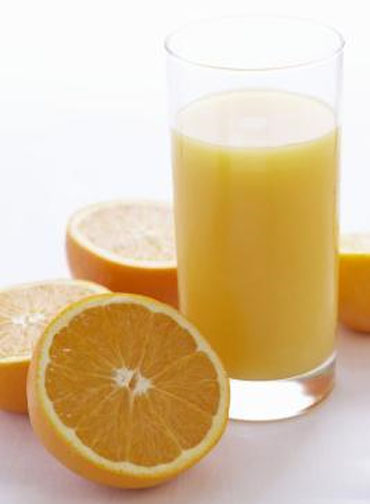現在位置 : 營養 > Nutritional Value of Juice Vs. Concentrate
|
● 新鮮果汁與濃縮還原果汁的營養價值
Nutritional Value of Juice Vs. Concentrate Dec 15, 2010 By Christie Morton (livestrong.com) Fruit juice and the frozen juice concentrate found in the grocer's freezer section have similar calories and carbohydrate content. While juice has significantly more calories and less fiber than whole fruit, the American Academy of Pediatrics, AAP, says that fruit juice either fresh or concentrated can be a part of a healthy diet. Fruit juice in its most natural form is made by squeezing fresh fruit. The resulting liquid is primarily water and natural sugars. The AAP says the carbohydrate content varies from about 11 g per 100 mL to over 16 g per 100 mL. This translates to about 110 calories, 27 g of carbohydrate and 2 g of protein in one 8 oz cup of bottled orange juice. Concentration Process Concentrated fruit juice is made through a process called thermal evaporation which uses heat to evaporate most of the water from freshly squeezed juice. It can also be concentrated through reverse osmosis, which uses pressure to remove the water from the juice solids. Concentration began in 1944 as a way to extend the shelf life of fruit juice. Concentrate Once the concentrated juice has been reconstituted, its nutritional content is similar to freshly squeezed juice. A study published in the "Journal of Food Engineering" in July 2007 by Jesus et al. found that concentrated orange juice obtained by using the reverse osmosis method maintained its nutritional makeup. Once the juice has been reconstituted, an 8 oz serving has 110 calories and 27 g of carbohydrate, which is the same as bottled orange juice. The protein content is removed in the prepared concentrated juice, but the vitamin C content has increased to 160 percent from 70 percent in the bottled juice. It should be noted that 8 oz of concentrate that has not been prepared will have significantly more calories. Whole Fruit Fruit juice does not have the same nutritional value as whole fruit. The AAP states that fruit juice offers "no nutritional advantage over whole fruit" because unless the juice has pulp, all of the fiber has been removed. Juice can also be consumed much more quickly than whole fruit, causing 100 calories of juice to have more of an impact on the diet than 100 calories of whole fruit. One whole orange has 65 calories, 16 g of carbohydrate, 3 g of fiber and 1 g of protein. Juice and Hydration While cold water is the best choice for hydration, juice can count toward the daily fluid your body needs according to Joanne Larsen of Ask the Dietitian. She recommends adding six cans of water to frozen juice concentrate instead of three cans to double-dilute the juice. While this also dilutes the nutritional content, it cuts the calories and ups the water intake. Larsen says this satisfies thirst and will have less of an impact on your pocketbook and your daily calories. |
|
Click here to edit.
|


